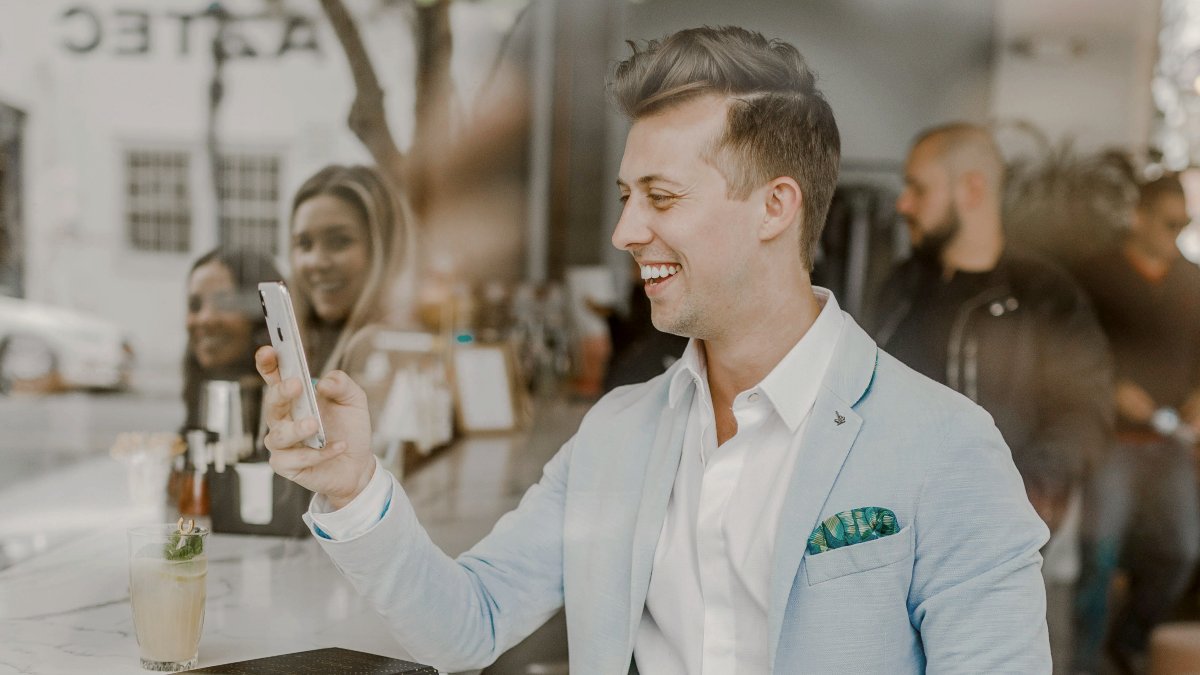
Dating Apps Have Placed Us All In A 'Love-Heartbreak Cycle'—Here's How To Break It
You don't have to be in a relationship in order to be happy. If you feel like you do, you might be doing yourself a disservice. Here's why.

By Mark Travers, Ph.D. | July 01, 2024
How I Met Your Mother was a hit sitcom that aired on CBS through the mid-2000s to the mid-2010s—well before social media turned into the surgical strike of made-for-yous it is today. But peel back the outdated setting and many still relate to protagonist Ted Mosby's desperate search for love. He once famously said, "You know what, I'm done being single. I'm no good at it."
Over nine seasons, we watched (and occasionally laughed) at Ted's attempts to find "the one," the elusive woman who could complete him. But then, when we peer a little deeper, some of us may question: Was Ted's long-drawn-out search fundamentally flawed? Did he really need to go through so many relationships to find the one that made him truly happy?
Most of us have some Ted in us. We tend to keep the hope alive that we have a soulmate and that someone who fits the mold of our perfect partner, even if we can't actually define it yet, will simply waltz into our lives. And social media and dating apps with their algorithms and their "for-yous" feed this hope. But there's an issue with this line of thinking.
Dating Apps/Social Media Don't Know The Real You
"Social media and dating apps are not shaping us; rather, we are shaping them by revealing our transitory desires. They merely respond to what we share," says Tami Kiekhaefer, LCSW, the author of Preparing for the Jungle: Avoiding Snakes and Pitfalls on the Path to Healthy Love.
Who or what the algorithm tells us is right for us is simply a mirror to our hazy, lazy and half-hearted likes, swipes, scrolls and pauses. We are often detached from real life when we react online, and this mindlessness reflects in the choices we are presented with as our ideal matches. And this can have consequences, according to science.
A study published in Computers in Human Behavior in January this year found that people who met on dating apps and went on to get married tended to have "less satisfying and stable marriages" compared to those who met each other via the old-school route. The study explains that online dating marriages faced higher levels of marginalization and more geographical distance-related issues, which happened to negatively affect their relationship.
But all this talk of marital satisfaction in online dating versus offline dating marriages may be jumping the gun, as dating apps have a rather low success rate to begin with, especially if your definition of dating success is ending up with a ring on your finger. Love can look different to different people and not everyone wants to get married, but a 10% "success" rate is very telling—most people don't find "the one" online.
Why? Because you are being shown the same people with different names that the algorithm thinks are right for you based on guesses you make via someone's bio and a few flattering pictures of them. You won't uncover the charming quirks of a cute stranger—those idiosyncrasies that subtly reveal themselves as they patiently await their third refill of coffee at the local café—from a mere online profile. Nor will a photograph alone convey the electric thrill that flashes through you from an unexpected gaze meeting yours across the room.
So, we pick a type on a whim—often not the right one—and we adapt to a pattern of groundhogging that makes us believe that a constant cycle of love and healing from the lack of it is our new normal. So, every time we fall in love again, we are waiting for the inevitable to happen.
Ending This Cycle Involves Facing Your Demons And Learning From Them
The erroneous and harmful belief that the ideal relationship doesn't exist for you can make you do unreasonable things in the reasonable pursuit of love.
"Many people think," Kiekhaefer explains, "that they can enter a new relationship and change their potential partner, mold them into what they want the other person to be. This will never work, because you can't change other people. Instead, I help people set themselves up with the tools and skills needed to be confident, assertive and to be able to communicate effectively about what they need."
Breaking unreasonable expectations from dating and love involves taking a long, hard look in the mirror, away from the cacophony of social media and dating apps, to understand what you really need from life. It involves wising up to the fact that turning the search for your soulmate into the primary objective of your existence—like Ted does—undermines the strong, confident and important human being you are in your own right.
If you are heartbroken, take a break. Allow yourself to experience what it feels like. Listen to it, and let it guide and help you set boundaries with people who seem like your type but, in reality, are the wrong kind of people to help you achieve the life you need.
Wondering how groundhogging is affecting your relationships? Take the Relationship Satisfaction Scale to gain clarity.
A similar version of this article can also be found on Forbes.com, here.
